Description
Penegra
Penegra is a vasoactive agent used to treat erectile dysfunction and reduce symptoms in patients with pulmonary arterial hypertension (PAH). Sildenafil elevates levels of the second messenger, cGMP, by inhibiting its breakdown via phosphodiesterase type 5 (PDE5). PDE5 is found in particularly high concentrations in the corpus cavernosum, erectile tissue of the penis. It is also found in the retina and vascular endothelium. Increased cGMP results in vasodilation which facilitates generation and maintenance of an erection. The vasodilatory effects of sildenafil also help reduce symptoms of PAH. For the treatment of erectile dysfunction and to relieve symptoms of pulmonary arterial hypertension (PAH).
Penegra is one of the analogues of Viagra and allows a man to cope with problems of impotence. The main active substance of this drug is Sildenafil, thanks to which a man gets an erection regardless of how serious sexual problems. The minimum dose of the drug is 25 mg, and the maximum dose is 100 mg. Experts are of the opinion that it is best to use a dose of 50 mg and take the pill about an hour before sexual intercourse. In such conditions Penegra operates as efficiently as possible.
One of the advantages of this drug is the fact that it takes much less time to restore strength for subsequent sexual acts. That is why many men choose the drug Penegra.
You Can buy: Silagra
Pharmacodynamics
Erections are controlled by the parasympathetic nervous system. Upon sexual stimulation, a decrease in vascular resistance is mediated by acetylcholine and nitric oxide resulting in vasodilation. The hemodynamic mechanism of an erection is comprised of five stages. During the latent stage, arterial and carvernous smooth muscle relaxation occurs. Vasodilation results in high levels of blood flow causing the penis to grow to its full size. This stage is called tumescence.
During the full-erection stage, blood flow fills penis sinusoids and outflow is restricted. This is followed by the rigid-erection phase during which the cavernous muscles contract causing the penis to become rigid. Little blood flow occurs during this stage. During the final stage, detumescence, the cavernous muscles relax and blood flows out of the penis. Erectile dysfunction may occur when there is insufficient blood supply to the penis or when the penis is unable to prevent outflow of blood from the penis.
Sildenafil is a specific inhibitor of PDE5, an enzyme responsible for the breakdown of cGMP to 5’-GMP. Increased levels of cGMP stimulate vasodilation and facilitate the generation and maintenance of erections. These vasodilatory effects also help decrease symptoms of PAH. Sildenfail also exhibits some activity against PDE6 (10 times less potentcy compared to PDE5), a PDE isoform found predmoninantly in the retina. This activity is responsible for the blue tinged vision experienced by users of sildenafil.
Mechanism of Action
Sildenafil inhibits the cGMP-specific phosphodiesterase type 5 (PDE5) which is responsible for degradation of cGMP in the corpus cavernosum located around the penis. Penile erection during sexual stimulation is caused by increased penile blood flow resulting from the relaxation of penile arteries and corpus cavernosal smooth muscle.
This response is mediated by the release of nitric oxide (NO) from nerve terminals and endothelial cells, which stimulates the synthesis of cGMP in smooth muscle cells. Cyclic GMP causes smooth muscle relaxation and increased blood flow into the corpus cavernosum. The inhibition of phosphodiesterase type 5 (PDE5) by sildenafil enhances erectile function by increasing the amount of cGMP.
Side effects
All medicines may cause side effects, but many people have no, or minor, side effects.Some medical conditions may interact with Sildenafil.
Tell your doctor or pharmacist if you have any medical conditions.
Common sildenafil side effects may include: flushing (warmth, redness, or tingly feeling), headache, dizziness, abnormal vision (blurred vision, changes in color vision), runny or stuffy nose, nosebleeds, sleep problems (insomnia), muscle pain, back pain or upset stomach.
This is not a complete list of all side effects that may occur. If you have questions about side effects, contact your health care provider.

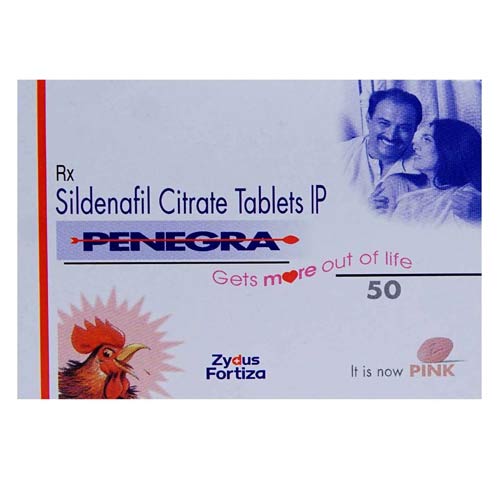
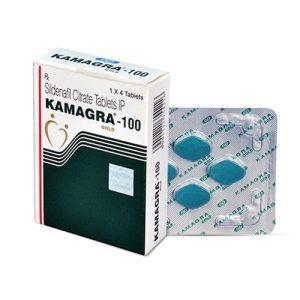
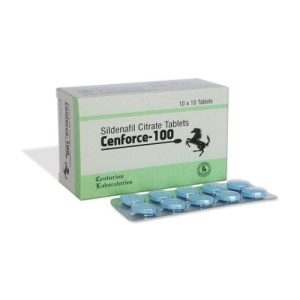
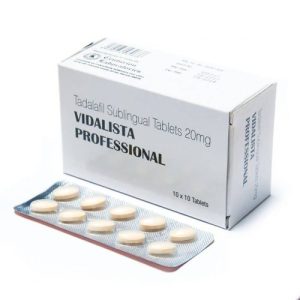
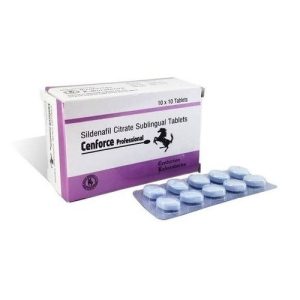
Reviews
There are no reviews yet.